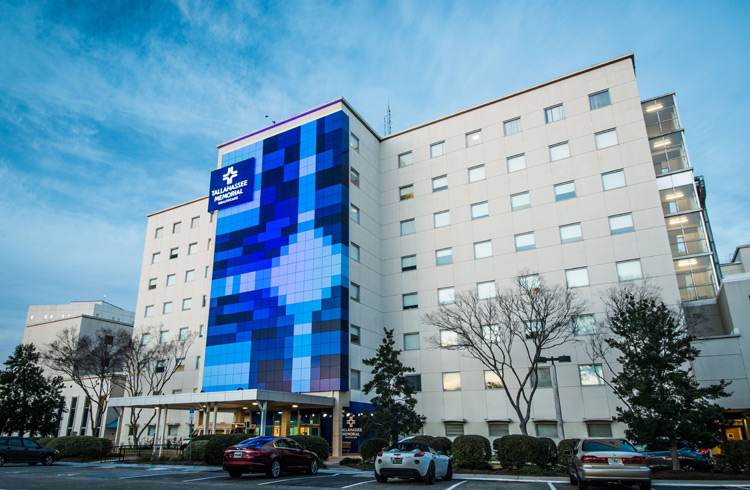Myth Busting the Causes of Breast Cancer
December 14, 2023
By: Tallahassee Memorial HealthCare
Categories: Women, Healthy Living, Cancer, Breast Cancer
Tags: Women's Health
It’s estimated that one in eight women will develop breast cancer in lifetime. If you haven’t had a diagnosis yourself, you likely know a family member, friend, colleague or community member who has been affected by it.
When you mix such a widely-known disease with our tendency to (accidentally) spread misinformation, you end up with a lot of misconceptions and false claims in everyday conversation. Deodorant causes cancer, your bra is to blame, and men can’t carry the BRCA gene mutation - there are plenty of claims out there, but there is a lot of research around what is and is not a risk factor for breast cancer. Have you heard any of these common claims?
Claim: Deodorant with antiperspirant causes breast cancer.
Aluminum is the base for most antiperspirants that block sweat glands, which is what prevents you from getting sweaty. There have been rumors for years that suggest the aluminum found in antiperspirants can cause breast cancer. However, most studies have not found a clear link that connects the two.
The only known relationship between antiperspirants and breasts is that you shouldn’t wear an antiperspirant when you go for a mammogram because of the aluminum found in it; this metal can show up on the mammogram image and throw off your results.
Answer: There is no solid link between deodorant with antiperspirant and breast cancer.
Claim: Only women can get breast cancer.
It is rare, but men can get breast cancer. An estimated one in every 100 men will develop breast cancer in their lifetime. Men are at higher risk if there is a family history of breast or ovarian cancer. Symptoms are similar to those found in women, such as a lump or swelling in the breast. Men with the BRCA1 and BRCA2 gene mutations have a higher risk of developing several cancers, including breast cancer.
Answer: Men can get breast cancer.
Claim: No family history means you probably won’t get breast cancer.
Statistically, only 5 to 10 percent of breast cancer cases are due to hereditary factors. A family history puts you in a higher risk category, but a lack of family history does not put you in the clear. In fact, most people who get breast cancer don’t have a family history of the disease.
If there are multiple generations diagnosed with breast cancer in your family, there’s a higher chance that there is a genetic mutation contributing to your family’s diagnoses.
If your mother or sister have had breast cancer, you should discuss this with your doctor as they may recommend earlier screening for breast cancer than women considered at average risk.
If you don’t have a family history, you should still talk to your healthcare provider about when to start screening for breast cancer.
Answer: Breast cancer can affect anyone. Every woman should get screened based on age and family history guidelines.
Claim: Wearing a bra can cause breast cancer.
The rumor that has floated around since the 1990s says that lymph fluid is restricted when wearing an underwire bra. However, scientific evidence does not support the idea that bras cause breast cancer. While bras are not linked to cancer, breast size is currently being studied to see if there is a correlation.
Answer: There is no link between wearing a bra and developing breast cancer.
Claim: Your age during menstrual changes is linked to a risk of developing breast cancer.
There are numerous studies that support a link between women’s reproductive factors and breast cancer:
- Women who started menstruating before age 12 have a higher risk of developing breast cancer later in life.
- Women who go through menopause after 55 have a higher risk of developing breast cancer.
Both of these risk factors are suspected to be due to having a longer exposure of estrogen in the body.
- There are also studies that indicate that a woman’s age at the time of her first pregnancy is linked to increased and decreased risks; giving birth at a later age (35+) has a small increase in risk of developing breast cancer and giving birth before age 35 is associated with a decreased risk.
Answer: Yes, there is an increased risk in developing breast cancer based on when you started your period or when you went through menopause.
While no one can predict if or when they will develop breast cancer, knowing the truth about these common claims is important. There are risk factors that you cannot change, including your family history, genetic mutations, your age, and your reproductive history. However, you can make lifestyle changes that may lower your risk, like exercising regularly, following a healthy diet, decreasing alcohol consumption, and maintaining a healthy weight.
If you or your loved one receives a breast cancer diagnosis, know that Tallahassee Memorial HealthCare (TMH) – Your Hospital for Life – is here to support you every step of the way. Our Walker Breast Program provides patients personalized, comprehensive and compassionate care for breast health. Offering a wide range of services, patients have access to advanced screenings for preventive care, diagnostics and testing, state-of-the-art treatments, as well as breast health education and support programs, all conveniently located on TMH’s campus.
Early detection is key, so one of the most important things you can do is schedule your annual mammogram. The Sharon Ewing Walker Mammography Clinic at TMH offers a full array of diagnostic services. Appointments can be requested online or over the phone by calling 850-431-5433.
Lastly, TMH has a number of events happening across our community this month to Go Pink and take a stand against breast cancer. We hope you’ll join us!

